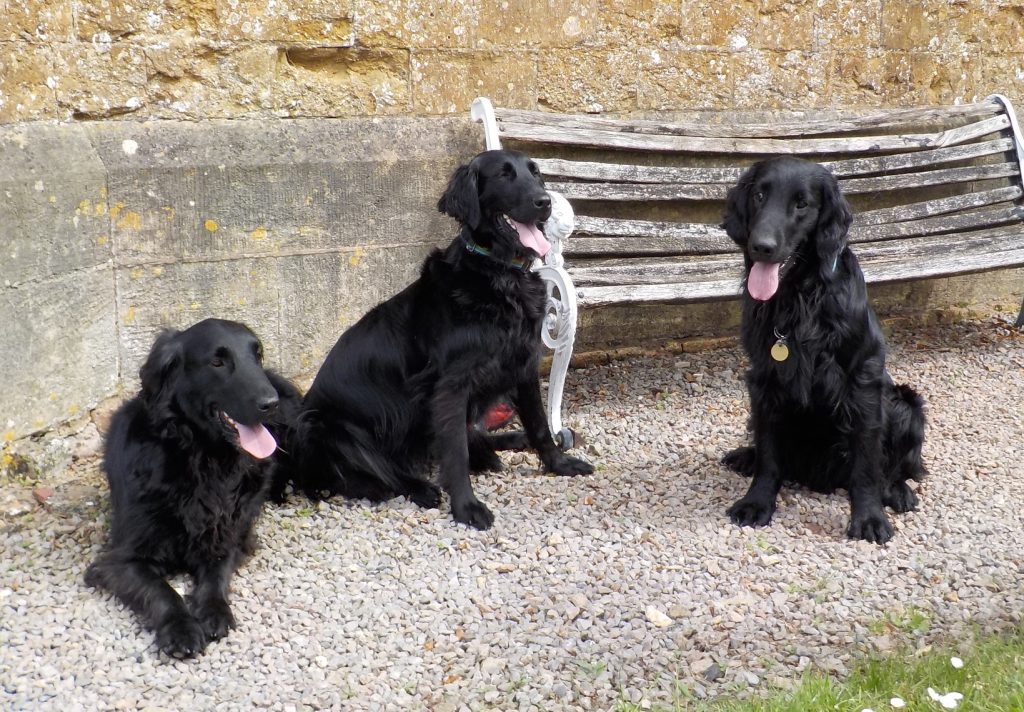
Communication skills in veterinary and human animal medicine
Pre-amble:
I have been collaborating with Dr. Michael P. McDermott on research into veterinary communication skills since the fall season of 2014. Initially I met Michael via his PhD studies; after his graduation in the summer of 2018 we continued our collaboration and with others we have published five papers(1,2,3,4,5). It is a pleasure to declare that the credit for the scholarship to produce the papers and to have them published rests principally with Michael due to his vision, drive, cognitive and affective skills, and perseverance. It has been a privilege to collaborate with him.
The papers are available from Michael or from me for personal usage including teaching and research with the appropriate attributions.
The research:
By way of a brief summary of the papers I should explain that the foundation position regarding veterinary communication skills is set out in the 2015 paper(1) which has links to the work I did with Dr. Elizabeth Mossop and colleagues(6). The 2017 paper(2) is a classic assessment of needs for, and perceptions about, communication skills from the veterinary practitioners. The 2020 paper(3) takes a patient-centred clinical model of communication skills education in human animal medicine and reports on the application of the model in veterinary medicine. The 2021 paper(4) demonstrates Michael’s creativity in taking a model of relationship-centred communication skills evaluation in human animal medicine and reports on its application in veterinary medicine. The 2022 paper(5) breaks new ground by analysing the veterinarian’s communication skills towards the pet in small animal consultations.
Conclusions:
As the late Mary Midgley (1973) reminded us, “Homo sapiens is not just mildly interested in animals; he is an animal,” (sic) and there are many messages from these papers that can be applied to communication skills teaching with medical students in human animal medicine and in veterinary medicine(7).
Margaret Atwood (2022) writes in her book “Burning Questions,” about the importance of the arts in enabling us to achieve technological competence. In medicine technological competence in diagnosis and treatment are of only limited use if there are deficiencies in the arts of the communication skills. There is growing evidence for the benefits of good communication skills for the patient and guardian or carer in terms of meeting hopes and expectations, and effectiveness. For the physician the benefits are in terms of fulfilling their altruism, competence, and empathy and thereby boosting their resilience and avoiding burnout.
Atwood (2022) asks, “what will happen next?” and she speculates about talking with animals and being instructed by plants inter alia. Furthermore, as Suzanne Simard (2022) has shown, plants, trees, and other species in the forest have sentient qualities including wisdom and healing and they communicate with each other.
Connecting all these points together leads me to the conclusion that good communication skills in medical consultations are transformative and they benefit all concerned.
Atwood, M. (2022). Burning questions (pp. 12, 147). London: Chatto & Windus.
Midgley, M. (1973). The concept of beastliness: Philosophy, ethics and animal behavior. Philosophy, 48, 111-135. doi:10.1017/S0031819100060599
Simard, S. (2022). Finding the mother tree. London: Penguin Random House.
Publications in veterinary communication skills:
(1) McDermott, M. P., Cobb, M. A., Tischler, V. A., Robbé, I .J., & Dean, R. S. (2015). Veterinarian-client communication skills: current state, relevance, and opportunities for improvement. Journal of Veterinary Medical Education, 42(4), 305-314. doi:10.3138/jvme.0115-006R
(2) McDermott, M. P., Cobb, M. A., Tischler, V. A., Robbé, I .J., & Dean, R. S. (2017). Evaluating veterinary practitioner perceptions of communication skills and training. Veterinary Record, 180(12), 305-311. doi:10.1136/vr
(3) McDermott, M. P., Cobb, M. A., Robbé, I .J., & Dean, R. S. (2020). Implications of a novel method for analyzing communication in routine veterinary patient visits for veterinary research and teaching. Journal of Veterinary Medical Education, 47(6), 709-719. doi:10.3138/jvme.1018-124r1
(4) 103997McDermott, M. P., Cobb, M. A., Robbé, I .J., & Dean, R. S. (2021). Preliminary assessment of a tool for measuring relationship-centred communication in veterinary consultations (adapted VR-COPE). MedEdPublish, 10, 134. doi:10.15694/mep.2021.000134.1
(5) McDermott, M. P., Cobb, M. A., Robbé, I .J., & Dean, R. S. (2022). The Dolittle factor: “Talking to the animals” during veterinary consultations. Veterinary Record, 190(9), 339-384. doi:10.1002/vetr.1380
(6) Mossop, L., Gray, C., Blaxter, A., Gardiner, A., MacEachern, K., Watson, P., Whittlestone, K., & Robbé, I. J. (2015). Communication skills training: what the vet schools are doing. Veterinary Record, 176(5), 114-117. doi:10.1136/vr.h425
(7) Boyd, S., Gardiner, A., Phillips, C., Paterson, J., Brown, F. J. L., & Robbé, I. J. (2017). Foundations skills for veterinary medical research. In Carnell, B. & Fung, D. (Eds.), Developing the higher education curriculum (pp. 75-88). London: UCL Press.
